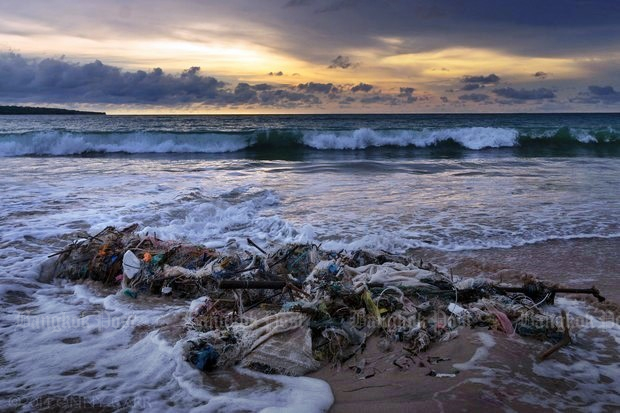
The government's recent response to public concern over plastic and other pollution has been as tepid as it was disappointing. Faced with real evidence and dramatic cases of ongoing harm, authorities failed to seize the day. The pathetic and heavily documented death of a male pilot whale that choked on 80 plastic bags highlighted what we are doing to the oceans. The case caused experts to emerge to explain the details. The response by the government was a short, barely publicised and utterly failed attempt to stop vendors in some Bangkok wet markets. And even that has now halted.
This is not acceptable action in the face of huge increases in pollution in recent years. Thailand is the world's sixth-largest source of plastic waste currently polluting oceans. Among other consequences, this accumulation of Thai waste kills the animals of the sea. Whales, dolphins and turtles die from accidental consumption of plastic directly from Thailand. They die, according to international expert Thon Thamrongnawasawat of Kasetsart University, at the rate of about one such animal a day, all year.

Some selfish and neglectful government officials have ignored evidence of this terrible pollution, and the nation's neglect of the plastics problem. That excuse ended last month. Eight weeks ago, experts from the Department of Marine and Coastal Resource found a highly distressed pilot whale, barely alive, in a canal near the Malaysian border. They took it to their facilities and began trying to nurse the animal back to health. They took 80 consumer-size plastic bags from inside the whale, which died within a day from its injuries. As Mr Thon put it, realistically, "If you have 80 plastic bags in your stomach, you die."
And if you can work to prevent such a death to an innocent animal, you should try. Thailand has a few concerned people and experts like Mr Thon. It has some groups of concerned citizens, who work without pay or praise to clean up beaches, clean coral and try to remove the worst "islands" of pollution found drifting off the Thai coast. It's an impossible task without a national, across-the-board effort to do the job. That automatically means government must be involved.
Government for decades has ignored its responsibility to clean up the country. As a result, plastic waste has grown like Topsy. The briefly well-meant campaign to import other countries' waste for recycling had predictable results -- toxic waste dumped without care or responsibility, including once again into the Gulf and the Andaman Sea. It should shame several government ministries and the Office of the Prime Minister that Thailand spews more waste into the Pacific and Indian oceans than several dozen countries with longer coastlines.
Thailand currently dumps about 3,000 tonnes of plastic waste into the sea every day. India, with more than twice as long an ocean coastline, pollutes half as much. The United States has more than eight times Thailand's coastline of 3,220 kilometres, but is responsible for less than one quarter as much pollution.
Thais need to be both convinced and then prodded into acting more responsibly. Government is the biggest producer of propaganda over a vast network that covers every single base -- printed media, TV and radio, and internet-based outlets. These can be, and should be marshalled into a grand effort to educate and show the country the extremely harmful results of pollution, starting with plastics.
It is never too late to begin a campaign against careless handling of plastic pollutants -- including plastic bags and high-tech waste. A national and government-backed programme along the lines of the Magic Eyes campaign of the 1980s would cut waste. At the same time, government must get serious about an enforceable, sustainable anti-pollution policy and laws. The country's image and health are at stake.
